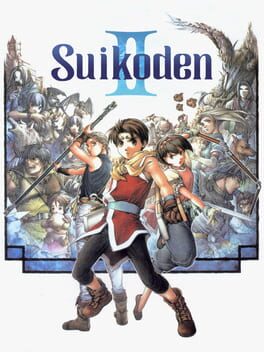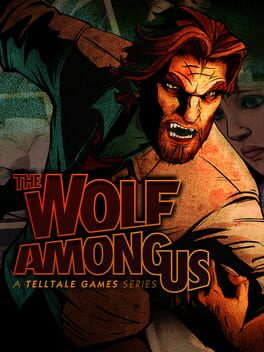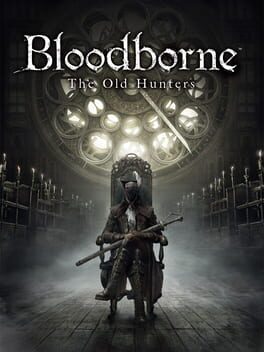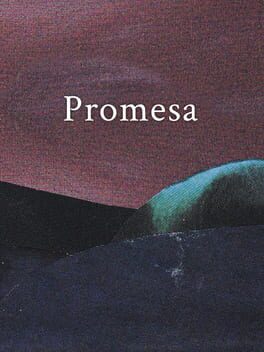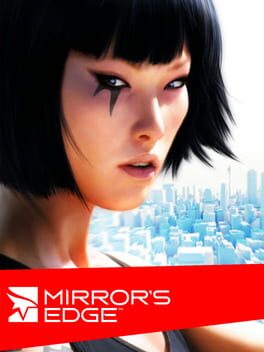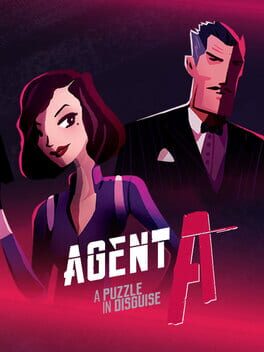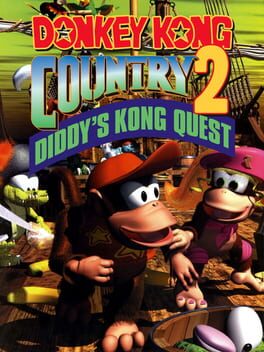sam_gray
1998
This review contains spoilers
The flaws are obvious: 108 characters is just too many for one game to handle without feeling overstuffed, though I appreciate the efforts to make them all distinct, even if some end up as one-dimensional comic relief. I wasn't convinced by the best friend's betrayal, with the subsequent parallel narrative only glimpsed in occasional, underwritten cutscenes. The endings are curiously unsatisfying, too - perhaps all a result of a clumsy translation. And yet the game's appeal still shines through. It's uncommonly direct about politics and the devastation of war, and constantly ties it into the gameplay - hearing e.g. a village you regularly visit for items has been destroyed lends the story an extra degree of weight. The evolving home castle is a marvellous location, too. It's full of asides that deepen our relationship to the characters and the ideology of the main mission, culminating in the moving moment where "reinforcements" in a major battle are simply the vendors and NPCs coming to your aid. Not exactly a challenging game, and not quite as emotionally magnificent as something like Final Fantasy VI, but it shares with that one a precision in its 16-bit cutscene direction, revealing all manner of human detail with the smallest changes to its sprites.
2013
Silly, but I have a soft spot for the Telltale formula. The detective story pairs well with the gameplay, which gives you a nagging sense of always missing out on something due to the choices you make. It's also a challenge to the player's God complex: playing as a cop (literally a lone wolf) who must adapt to his community, where there isn't yet an institution he can hide behind. Obviously hampered by some blatant telegraphing, stilted dialogue, and a terrible villain (Bloody Mary) - but intriguing enough to be sad that its original creative team never got to continue the story.
Has a weird structure, beginning on a brutally hard note (the Ludwig fight), going narratively explicit in the middle, and finishing somewhere primal and hard again. Orphan of Kos is a great fight, and some of the environmental design is good, but I still have the same problem with Bloodborne: it's at once too vague to be satisfying and not abstract enough to work as a mood piece. Comparisons to the original Dark Souls are unfavourable - that was all about light and shadow and could be enjoyed as a kind of perverse origin myth, whereas this is more a series of disjointed setpieces with tenuous thematic connections. It's trying to evoke dream logic, which is at odds with the grounded, you-are-there nature of the gameplay. Which is maybe the point, but it doesn't always work for me. And fuck Laurence.
I love the structure, the slow, difficult progression of the first half spent inadvertently memorising an environment that gets (literally) flipped in the second half. You don't get a map when you get to the inverted castle - you just have to work it out from memory and familiar cues.
I also love the weirdness of each individual enemy, and the sheer volume of them. It's an excessive game, the last gasp of 2D before 3D became king, which means it's actually dated rather well. It's boring to say that all roads lead to Dark Souls, but this is its most obvious stylistic influence - hands off, surprisingly stat-driven, and eventually able to be broken in an appealing way.
I also love the weirdness of each individual enemy, and the sheer volume of them. It's an excessive game, the last gasp of 2D before 3D became king, which means it's actually dated rather well. It's boring to say that all roads lead to Dark Souls, but this is its most obvious stylistic influence - hands off, surprisingly stat-driven, and eventually able to be broken in an appealing way.
2020
This review contains spoilers
So the greatest video game franchise of all time ends on a bit of a whimper. It’s still 90% of the way there, ditching much of the series’ lunatic theatrics for an addictive gameplay loop where war is a fun business. I like how this, like its predecessors, tries to reinvent the wheel, and while it’s similar to the (brilliant) Peace Walker - proceeding like a television show, with regular small-scale crises and a larger threat only occasionally making itself known - the overall trajectory is very different. The unfinished aspects almost help the game’s structure, as the unsatisfying Skull Face defeat gives way to diminishing returns, paranoia, and boredom, at which point the main character’s slide into villainy seems inevitable. It sometimes gets a bit Spec Ops: The Line with its unsubtle messaging - but I don’t hate that game (war games are inherently pro-military, it’s fair to criticise that) and moments like your base soldiers humming the Peace Walker theme before you shoot them are suitably chill-inducing.
That being said, the ending is terrible. It isn’t woven into the dramatic structure, it just happens - you suddenly replay the tedious hospital sequence with a new cutscene at the end. It’s a shame, because there’s something fascinating there about puppetry and identity and power - all key to the Metal Gear experience. There’s something powerful, too, about Quiet, the silent assassin who falls in love with the doppelgänger of the man she’s supposed to kill, whose silence is revealed as irrefutable proof of that. But the character design (and camera angles) are Kojima at his most openly misogynistic. (Thankfully there’s nothing quite as bad this time as Paz’s vagina bomb.) So 90% of the way there - which, as it turns out, is a pretty good game.
That being said, the ending is terrible. It isn’t woven into the dramatic structure, it just happens - you suddenly replay the tedious hospital sequence with a new cutscene at the end. It’s a shame, because there’s something fascinating there about puppetry and identity and power - all key to the Metal Gear experience. There’s something powerful, too, about Quiet, the silent assassin who falls in love with the doppelgänger of the man she’s supposed to kill, whose silence is revealed as irrefutable proof of that. But the character design (and camera angles) are Kojima at his most openly misogynistic. (Thankfully there’s nothing quite as bad this time as Paz’s vagina bomb.) So 90% of the way there - which, as it turns out, is a pretty good game.
1996
The later ones fix the controls, the awkward camera, but this is still maybe my favourite 3D Mario platformer because every level is a puzzle with multiple solutions, a space to be explored instead of a route to follow directions. The atmosphere is palpable and strangely melancholy, abetted by one of the greatest soundtracks of all time. And Mario himself is a physical presence - he sounds like an easily terrified middle-aged man, all whoops and groans, and he plays like one too, e.g. using his whole body to turn. Which is funny, but also personable in a way that's since been lost. He's a corporate icon now instead of someone willing to endure immense physical pain in order to get laid.
2008
2009
I'd give the edge to Dark Souls, which has one of my favourite game mechanics ever - the Estus Flasks - and that incredible, interconnected journey to Anor Londo, which takes the player down into a literal Hell and then back up to Mount Olympus to become a God. And I like the fact that Firelink Shrine is mere seconds away from danger, whereas it's a bit too easy to retreat into the Nexus here - even if the music changes and the murderous Yurt undercut its safety somewhat.
Still, what a game! Five distinct areas, overflowing with atmosphere, and with some of the best level design I've ever seen. Specialising in magic made some of the boss fights trivial, but getting to them is all kinds of incredible. Tower of Latria is an obvious standout, though all of them work together in harmony, and the player-created structure - which lets you move between levels, using the items you've found in one to help you out in the other - is so inspired. My favourite might actually be the swamp in the Valley of Defilement, which, by removing your depth perception and mobility, becomes infinitely terrifying. And even the ending is good, tempting you with the promise of more Souls for when you inevitably play through it again. I wish they hadn't bothered with a remake. It's basically perfect as it is.
Still, what a game! Five distinct areas, overflowing with atmosphere, and with some of the best level design I've ever seen. Specialising in magic made some of the boss fights trivial, but getting to them is all kinds of incredible. Tower of Latria is an obvious standout, though all of them work together in harmony, and the player-created structure - which lets you move between levels, using the items you've found in one to help you out in the other - is so inspired. My favourite might actually be the swamp in the Valley of Defilement, which, by removing your depth perception and mobility, becomes infinitely terrifying. And even the ending is good, tempting you with the promise of more Souls for when you inevitably play through it again. I wish they hadn't bothered with a remake. It's basically perfect as it is.
2012
2015
2015
I really tried with this, and I can see why some find it so charming - the sidequests have an amusing, inventive wit, and the typical life-of-crime, fall & rise set-up is intelligently shaded. But there's also way too much time spent watching cutscenes, and the snippets of gameplay we get aren't quite compelling enough to make it worthwhile. The tactics in the brawls just boiled down to mashing buttons and occasionally using an unlimited supply of healing items. There's no tension to it. And the side bits - karaoke, flirting with the bowling receptionist, Mr. Shakedown - are fine, but heavily compartmentalised, like everything else. I wasn't expecting GTA, but there's a lack of flow here that I found unproductively claustrophobic. Will revisit down the road, maybe.
2019
This isn't entirely the game's fault, which plays well and makes good use of vertical movement, but I'm not particularly into this strain of indie games that posit themselves as aggressively nice - perhaps as a response to years of aggressively nasty AAA titles - at the expense of anything negative that might break the spell. The lower-caps, self-aware dialogue felt cutesy instead of human. Give me more moments like the rain-soaked graveyard, or the perilous journey through the snow, and maybe the self-congratulatory ending might feel less hollow.
I gave up on Donkey Kong Country somewhere around the ice levels, though I'd been tempted to all the way back at the first minecart hellscape. Catching the player by surprise with a precise jump or off-screen enemy they have no time to prepare for is old-school sadism, aimed at people who'd rather memorise a layout than question its design. I've got no patience for it.
This, on the other hand, is a gem. It makes the small but significant change in its design philosophy that the player should be prepared for the challenges they have to face. So each level tells you how to play it at the start, then slowly ramps up the difficulty so you have only yourself to blame for mistakes. On a macro level, the difficulty increases steadily as well - the game builds on its own architecture while constantly throwing in new surprises. And thank God for Trixie Kong. Her flutter is a game changer, especially with the emphasis on vertical levels. Though it should be said that the two partners feel balanced this time, instead of cumbersome Donkey Kong dragging down his own game.
I still have a few issues with the shaded graphics, which sometimes make confusing e.g. what is and isn't a ledge. But in every way - not just gameplay-wise but musically, stylistically - it's a terrific improvement.
This, on the other hand, is a gem. It makes the small but significant change in its design philosophy that the player should be prepared for the challenges they have to face. So each level tells you how to play it at the start, then slowly ramps up the difficulty so you have only yourself to blame for mistakes. On a macro level, the difficulty increases steadily as well - the game builds on its own architecture while constantly throwing in new surprises. And thank God for Trixie Kong. Her flutter is a game changer, especially with the emphasis on vertical levels. Though it should be said that the two partners feel balanced this time, instead of cumbersome Donkey Kong dragging down his own game.
I still have a few issues with the shaded graphics, which sometimes make confusing e.g. what is and isn't a ledge. But in every way - not just gameplay-wise but musically, stylistically - it's a terrific improvement.
A clunky game, like its predecessor, and yet even more confident, experimental, and detail-oriented that complaints about it being "uncomfortable" to play become totally insignificant. The structure is ambitious, to say the least, based around clones and copies; the sense of déjà vu is inherently game-like, the notion of the virtual disconnecting one from reality is incorporated into the game's fabric that is, itself, in an uncanny state of decay. I'm sure the brilliant boss fights, tight environmental design, and disorienting perspective shifts have all been analysed to death by this point, but what a thrill to experience even twenty years on, especially the moment when Kojima disregards the action climax to go full Adam Curtis with the motivation of the "villains". Only the Raiden/Rose dynamic falls short. Roll on Snake Eater.
